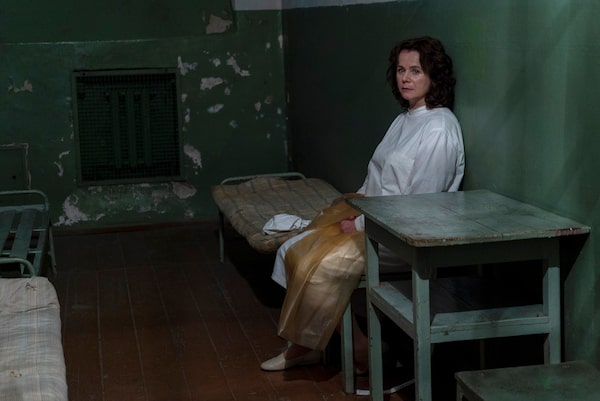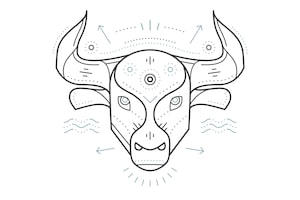
Handout
Barry Hertz

For something that feels terrifyingly close to reality, watch HBO’s The Plot Against America.HBO / Crave
Whoever came up with the saying, “May you live in interesting times,” never envisioned that said times would include so many avenues of ready-to-stream distraction that anxiety can either be muted or amplified, depending on your mood. As an escape, I’ve been finding high comedy in Catastrophe, the British series about what happens when an American ad man (Rob Delaney) has a one-week stand with an Irish teacher (Sharon Horgan), and the accidental pregnancy that follows. The series, now available in full on Amazon Prime Video Canada, is funny, acidic, sweet and sharp, often all at once. On the other end of the spectrum, I’ve been clutching my couch during binges of HBO’s The Plot Against America, an adaptation of Philip Roth’s novel that feels terrifyingly close to reality. Adapted for the screen by The Wire’s David Simon and Ed Burns, the six-part miniseries delivers a vision of an alternate America circa 1940, in effect echoing everything from the horror of the Trump administration to the politicization of the pandemic currently dominating all of our lives. It is excellently produced and performed – it’s packed with Wire alums and Zoe Kazan has never been better – but will also surely cause nightmares. So, maybe take a Catastrophe break every other episode … or throw on an episode of HBO’s Westworld, which in its third season has become so delightfully bananas in a what-are-the-writers-smoking kind of way that our reality will, in comparison, seem positively calm.
Brad Wheeler

HBO's Chernobyl lines up nicely with today’s self-sacrifice and science-versus-politics debate.The Associated Press
For earaches, I listen to Limp Bizkit loudly. And during a viral pandemic, I watched Chernobyl, a terrifying miniseries on the Soviet-era nuclear disaster. With its red-hot parallels to today’s self-sacrifice and science-versus-politics debate, the 2019 HBO series is a shock to the system. I also enjoyed The Good Shepherd, a spy drama starring Matt Damon as a failed father, pioneering CIA agent and man of principle. Joe Pesci has only a tiny part as a mobster, but his one scene is chilling: “We Italians, we got the church,” he says to Damon’s WASP character. The Irish, they got the homeland. The Jews, their tradition. But what about you guys, what do you have?” The deadpan reply: “The United States of America, and the rest of you are just visiting.” The Plot Against America is an alternate-history miniseries from HBO about American anti-Semitism that takes place in 1940-41, but it couldn’t be more on the nose with its take on the current wave of xenophobia and populism. “There’s a lot of hate out there, and he knows how to tap into it,” says one character about Charles Lindbergh, the aviator hero who – in this story – stokes fascism and runs for the presidency. I also went back to Once Upon a Time in Hollywood. With every viewing of this 161-minute Quentin Tarantino epic, I discover a new scar on the body of Brad Pitt’s stuntman character.
Craig Offman

Handout
A glutton for anxiety, I have turned my sights to the Middle East – in particular the third season of the political psycho-thriller Fauda. Named after the Arabic word for chaos, the adrenalized Netflix series depicts of the cruelty perpetrated by both the Israelis and Palestinians as they struggle to undermine each other. On the relatively lighter side, huge huzzahs to the witty, infectious splendour of The Great (Amazon Prime), a playful take on Tsarina Catherine’s ouster of her feckless husband, Peter. (It also goes a long way to explain the scandalous horse rumours.) While we’re in that turbulent neighbourhood, I’m a long-time follower of the subgenre you could call Slavic Schlepper Lit – from Gogol to Shteyngart – and I relished Maria Reva’s Good Citizens Need Not Fear. The intertwined short stories from this Canadian author are set in glasnost-era Ukraine – bleak, moving and wonderfully satirical. From the travails of a couple who manufacture bootleg albums on X-ray film to a getaway package tour that offers tourists a life-like Gulag experience, Reva offers searing parables of post-glasnost life.
John Doyle

Handout
Some people are going on a streaming bender, but I have plenty of TV content, personally and professionally, thanks. There are other great diversions, in books and music. I have swallowed The Glasgow Trilogy (The Necessary Death of Lewis Winter, How a Gunman Says Goodbye and The Sudden Arrival of Violence) by Malcolm Mackay (Little Brown). These linked crime novels are astonishing for the spare, rigorously controlled writing and depiction of Glasgow’s seamy underworld of drug barons and their enforcers. There is no mystery, only a tense, vivid journey into the mind and daily life of Calum MacLean, a twentysomething hitman who doesn’t enjoy killing but does it sublimely well. An old and hefty anthology has brought comfort too: The New Oxford Book of American Verse, edited by Richard Ellmann (Oxford University Press, 1976). Ellmann, best known as a James Joyce scholar, chose well for this concise collection. He favours “excellence” over representing schools of American poetry. It begins with Anne Bradstreet, who died in 1672 and ends with Amiri Baraka (LeRoi Jones) who died in 2014. There’s a substantial amount of Walt Whitman and a judicious selection from the Beat poets. Throughout, Ellmann is supervising an expedition into the American psyche and soul, travelling devotedly through politics and landscapes. At night with a drink, Hangover Honeymoon by Kevin Quain (kevinquain.com) is a solace. Quain’s first album from 1999 is an exquisitely melancholy, boozy odyssey through late-night bars, the bohemian life and love affairs both busted and unscathed. Noir and rueful, it’s a heady reminder of the beauty of drunken nights and the wistful days after.
J. Kelly Nestruck

Sally Rooney's novel Normal People gets its TV adaptation.Courtesy of CBC Gem
Survivor is an off-and-on guilty pleasure of mine – but, as there’s a pandemic going on, I’m enjoying the 40th season minus the guilt. I wouldn’t call the long-running CBS reality-TV show escapism, per se. Indeed, the competitors’ isolation from friends and family and excitement over the surprise delivery of foodstuffs are suddenly relatable. But host Jeff Probst is as calmingly bland as ever, bless him. I’m not totally off “prestige” television right now, mind you. I thought The Plot Against America was perfectly unnerving television – though I do think the superior recent HBO alternate-history limited-series adaptation was Watchmen (2019), Damon Lindelof’s continuation of the super-antihero story started by comic-book creators Alan Moore and Dave Gibbons. Rather than climaxing with an imagined American race riot, it begins with a real one, mostly forgotten: the Black Wall Street Massacre of 1921. I’m as big a sucker as anyone for it-could-happen/it-could-have-happened Nazi-obsessed narratives, but they are, in some ways, an erasure of the fact that other its did happen here. I’m not enjoying Normal People on CBC Gem, alas. I loved the Sally Rooney novel too much and so resent the displacing of my imagining of its world.
Kate Taylor

Seeking a substitute for my son’s missing lessons, I began prowling through French-language content on Netflix. (There’s precious little, but that’s a story for another day.) Our best find was Au service de la France (A Very Secret Service), a 2015-18 comedy-drama series set among Parisian spies in the 1960s. Hugo Becker plays a new recruit trying to parse the odd habits of an intelligence service as committed to its overtime payments and Friday drinks trolley as it is to French Algeria. The political in-jokes are amusing – this bumbling outfit helps trigger both the Algerian war and General de Gaulle’s infamous cry of “Vive le Quebec libre!” – while a romantic plot twists nicely. Think Get Smart crossed with Mad Men but en français. Catching up with old episodes of Schitt’s Creek and Workin’ Moms on CBC Gem, I stumbled across The Family Law. It’s a sitcom about a stage-struck Australian teenager (Trystan Go) and his big, dysfunctional Chinese family, basically a Down-Under version of Kim’s Convenience. Fiona Choi is particularly funny as the blunt-spoken mother of the brood. I’ve also been enjoying the newly released Sins We Made, a second album from Harrow Fair, the duet formed by Miranda Mulholland and Andrew Penner. Theirs is a foot-stomping, roots sound with the occasional balladic moment, including a haunting piece of Celtic-infused fiddle-playing from Mulholland on the instrumental number Shiloh.
Marsha Lederman

Netflix's Tiger King is the perfect binge watch.-/AFP/Getty Images
What I needed from art, I realized pretty quickly during this pandemic, was comfort and distraction. I gave myself a gift: the freedom to choose books I have been dying to read forever, that have been sitting patiently on my on-deck shelf, waiting for me. I began with Taffy Brodesser-Akner’s Fleishman is in Trouble: an accessible but well-crafted, compelling read about a marriage breakdown that not only kept me enthralled, but has led to discussions with friends who have also read it about what went down – a nice diversion from our usual COVID-obsessive conversations. Like pretty much everyone else I know, I binge-watched Tiger King and Unorthodox (distraction, not comfort), but for the first time in forever, gave myself permission to rewatch favourite films, including Rob Reiner’s rom-com masterpiece When Harry Met Sally and, with my 11-year-old, Ferris Bueller’s Day Off. I was surprisingly moved by the film’s Art Institute of Chicago scene. It had me mourning the art-museum experience, but also gave me an idea. On my last day at the office, my pandemic packing-up included Taschen’s What Great Paintings Say: 100 Masterpieces in Detail by Rose-Marie and Rainer Hagen. This is an extraordinary tome that will not only prop open a heavy door, but open your mind to another place. Each piece is a thoughtful essay with gorgeous details of a classic work of art. Rather than read it in chronological order, I choose a daily painting to go with my mood. Marc Chagall’s White Crucifixion, 1938, during Passover/Easter weekend, for example. And on a particularly dark day of the soul, a favourite painting: Gustave Caillebotte’s Paris Street, Rainy Day, 1877, one of the works Ferris encounters during his gallery visit. Reading in-depth about the Parisian couple under the umbrella as the rain pelted down outside my Vancouver window made me feel closer to the friend, now far away, with whom I first saw that painting – and also to the Art Institute of Chicago, one of my favourite places on the planet, and to beauty and to hope.
Shawna Richer
Finding consolation in Ricky Gervais's Netflix series After Life.Natalie Seery/Netflix
I’m searching for the perfect state of anxiety, a balance between calm and complacency that requires a starve and feed approach. For me watching something a second (third even fourth) time is the ultimate comfort. I turned to Bloodline, the dark and foreboding Netflix series about family secrets set in the Florida Keys. I had forgotten how much I loved it the first time and burned through all three seasons in less than two weeks. The Yacht Rock channel on SiriusXM satellite radio is another source of tranquillity that doesn’t judge. California smooth and soft classic rock, and every fifth song features Michael MacDonald (not quite but almost). Ricky Gervais’s new Netflix series After Life is as consoling on a dark night of the soul as anything out there. The Last Dance (Netflix) is giving me my sports fix. The memoir Good Boy, a Life in Seven Dogs (Celadon Books) by Jennifer Finney Boylan is casting my own 24/7 quarantine relationship with my dog in a new light. Cross your fingers for a return of John Mayer’s Instagram Live show Current Mood, Sunday nights at 10 p.m. ET. Live from a corner of his house in Montana, Mayer is funny, self-deprecating, 45-minutes of gentle. If you’re lucky Dave Chapelle makes an appearance. There’s impromptu songwriting too. Drone Shot of my Yacht, Mayer’s musical takedown of David Geffen’s obscene approach to quarantine, has been a highlight of the pandemic.
Simon Houpt

Handout
Last summer, when The Globe and Mail Centre hosted workshop productions of three new short musicals inspired by articles from the paper’s archives, I fell hard for Cygnus, a plaintive chamber piece about two men who meet on the night of Toronto’s blackout in August 2003. With the Musical Stage Company’s productions currently on hold, they’ve put the full audio of all three shows on Soundcloud. Listening to it brings me back to happier days, and gives me hope for the future: a full-length version of the show is scheduled to open May 2021. Until then, I’ve been enjoying Red Card: How the U.S. Blew the Whistle on the World’s Biggest Sports Scandal, a definitive account of the FIFA clown show from BuzzFeed investigative reporter Ken Bensinger, whose reporting and prose make the colourful, appalling central characters pop off the page. When I’m in a more meditative phase and wondering when we’ll get flour back on store shelves, I’ve been mulling whether to make my own from scratch. (I can’t be the only one, surely.) Late one recent night, I found myself entranced by a 17-minute YouTube video titled simply Growing and using wheat at home, in which a California high-school botany teacher grows wheat and harvests it eight months later. He mills, sifts and cleans the resulting flour, then bakes what looks to be a very tasty loaf. It’s inspiring. And I figure, if I start now, I might even have fresh bread by the time we get a vaccine.
Plan your screen time with the weekly What to Watch newsletter. Sign up today.



